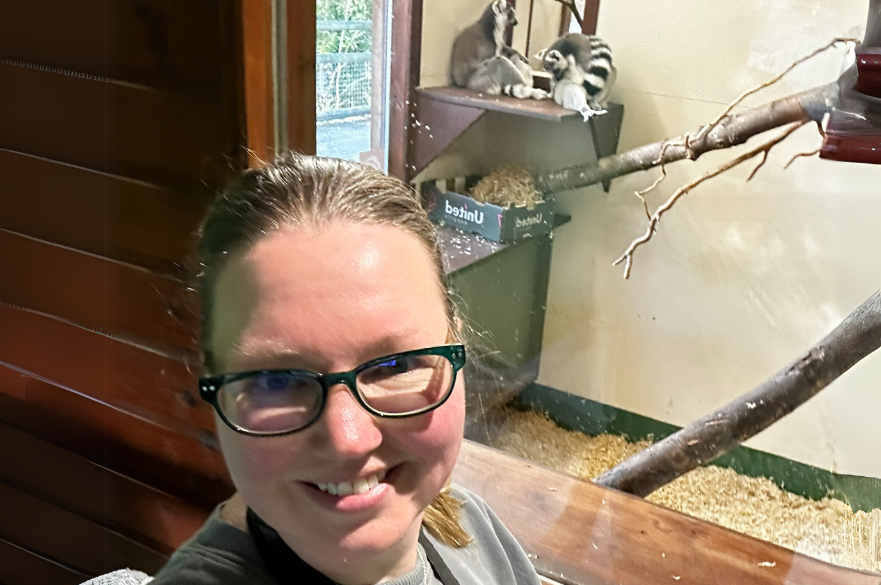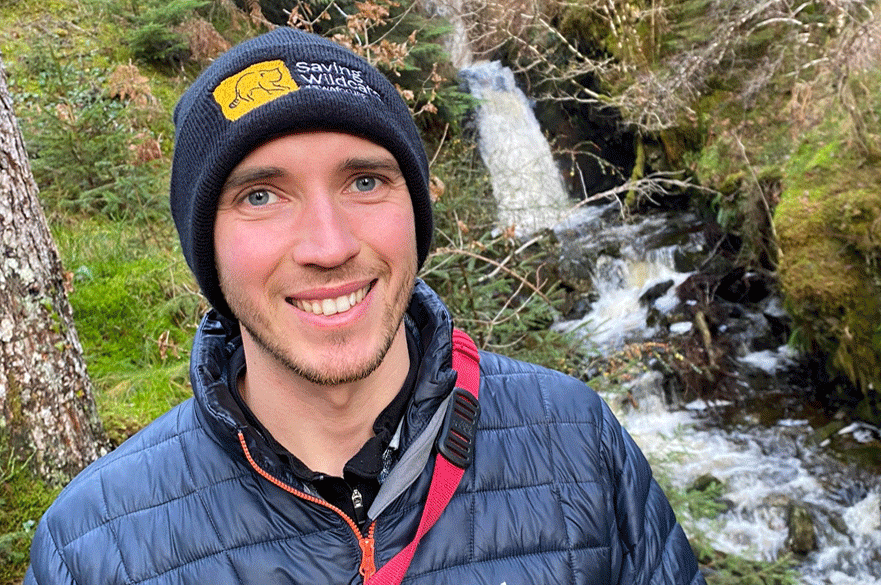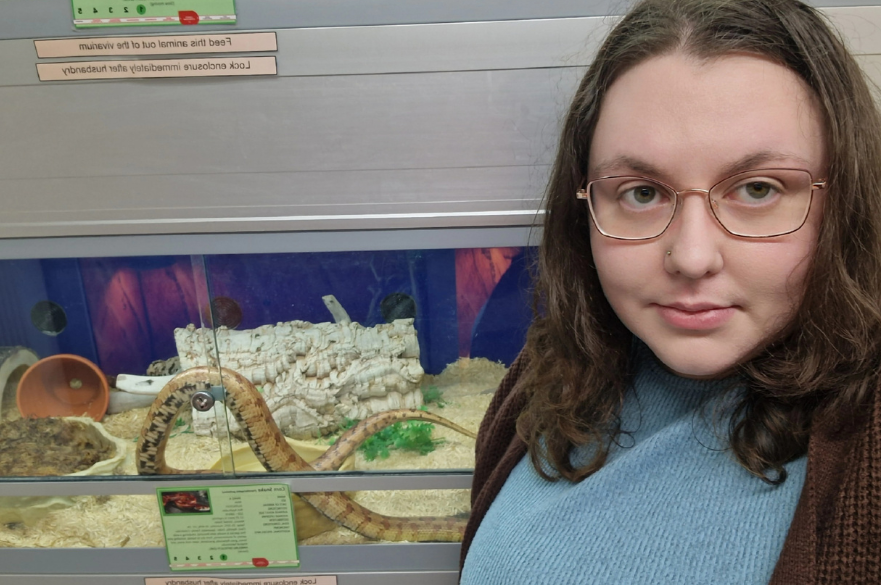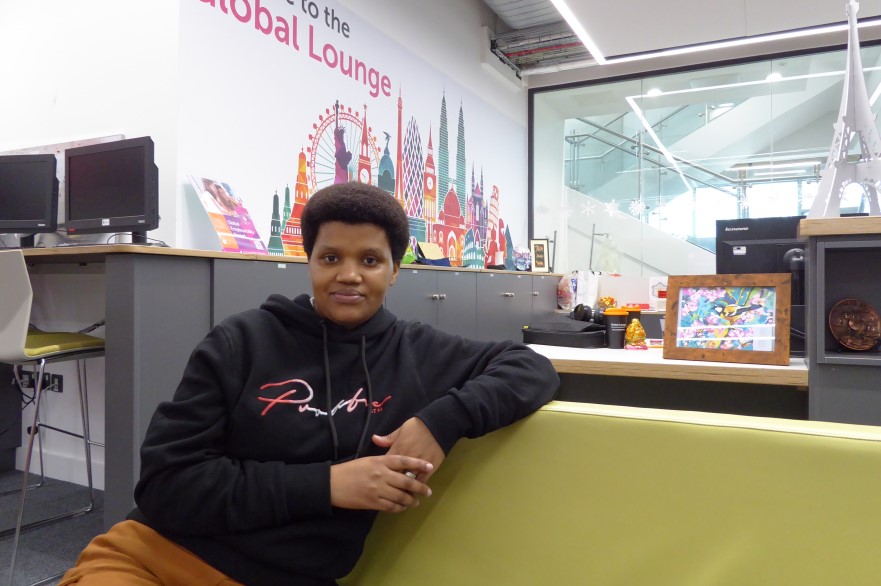
Brackenhurst Campus is absolutely beautiful. It is a quiet, welcoming campus with many lovely footpaths and hidden gems to read or to study.
More about Rebecca
Why did you choose to study your course at NTU?
I have always been passionate about wildlife and have wanted to work with animals for most of my life, but followed another career path. Some unexpected life events caused me to rethink what I wanted out of life, and upon looking for Master’s degrees in wildlife related fields, I came across the Endangered Species Recovery & Conservation Program. I was instantly hooked, so I decided to apply.
Prior to joining NTU, I spent much of my free time in between prior studies and employment volunteering in wildlife fields including a wildlife rehabilitation centre, monitoring Florida Sand Hill Cranes, and monitoring Florida Scrub Jays.
What made your mind up about studying a PG course at Brackenhurst Campus?
I performed a lot of research online trying to find a similar program, but was unsuccessful. I saw an opportunity as part of the program to get real-world experience during a course fieldtrip, which I knew would be invaluable. Finally, after traveling to England and speaking with the head of the program 1-1, I made the easy decision to attend NTU, and haven’t looked back since.
What do you enjoy most about your course?
I enjoyed the fieldtrip the most – being able to visit an organization with proven successful conservation efforts was priceless. It was an amazing trip and I learned so much. Participating in the field trip opened my eyes to the possibility of working in a rewilding program upon graduation, which would be a fascinating and rewarding opportunity.
How do you find your modules and what have you most enjoyed studying/ researching? Please tell us about any research you have been involved with during your time as a postgraduate student.
The modules have been difficult coming from a background in an unrelated field, but I have easily been able to link together key points from one module to the next and see the value in each module I’ve completed to date. I have enjoyed preparing for my research project the most, speaking with various zoos and researching animals that I previously knew nothing about.
What do you think about the facilities available on your course and what do you use the most?
I find the library invaluable. I enjoy performing research there and having the opportunity to reference books that are otherwise difficult to find. Having the resources freely available to me during my studies has proven to be a great help in understanding various modules.
What do you think about Brackenhurst Campus? What do you get up to in your spare time?
Brackenhurst Campus is absolutely beautiful. It is a quiet, welcoming campus with many lovely footpaths and hidden gems to read or to study. No matter how stressful of a day I have had, walking around on campus always relaxes me and reminds me of why I am here.
What is your top tip for someone considering studying/living at Brackenhurst Campus?
Expect the unexpected. Everything I have experienced since coming to England has been different than I expected, and everything that has happened to me has taught me valuable lessons about strength and perseverance.
Have you been involved in any placements, work experience or volunteering as part of your course? If so, what did you do and what did you achieve?
I have worked at a few undergraduate open days as a tour guide. I find that sharing my excitement and passion for Brackenhurst and the Endangered Species Recovery & Conservation program is the best way to encourage others to apply.
Why would you recommend your course to someone considering studying it?
The field trip provides invaluable information and is an experience that will stay with you forever. Learning about Endangered Species Recovery & Conservation through real-life events really helps to show what is possible in this type of career.
What are your plans for after the course and how do you feel your course has/will help you to achieve that goal?
I hope to work at a wildlife park or a zoo after graduating, preferably with birds or larger mammals. I have gained a new perspective on wildlife parks and zoos since starting the course and have finally begun to truly see the good that these organizations do for endangered species across the globe.
Still need help?
-

STUDENT PROFILE
Alex Scurrah-Price
Endangered Species Recovery and ConservationUnited Kingdom
https://www.ntu.ac.uk/study-and-courses/courses/our-students-stories/animal-rural-environmental-sciences/alex-scurrah-price
-

STUDENT PROFILE
Alice Weaver
Endangered Species Recovery and ConservationUnited Kingdom
https://www.ntu.ac.uk/study-and-courses/courses/our-students-stories/animal-rural-environmental-sciences/alice-weaver
-

STUDENT PROFILE
Anne Nyiransabimana
Biodiversity ConservationRwanda
https://www.ntu.ac.uk/study-and-courses/courses/our-students-stories/animal-rural-environmental-sciences/anne-nyiransabimana